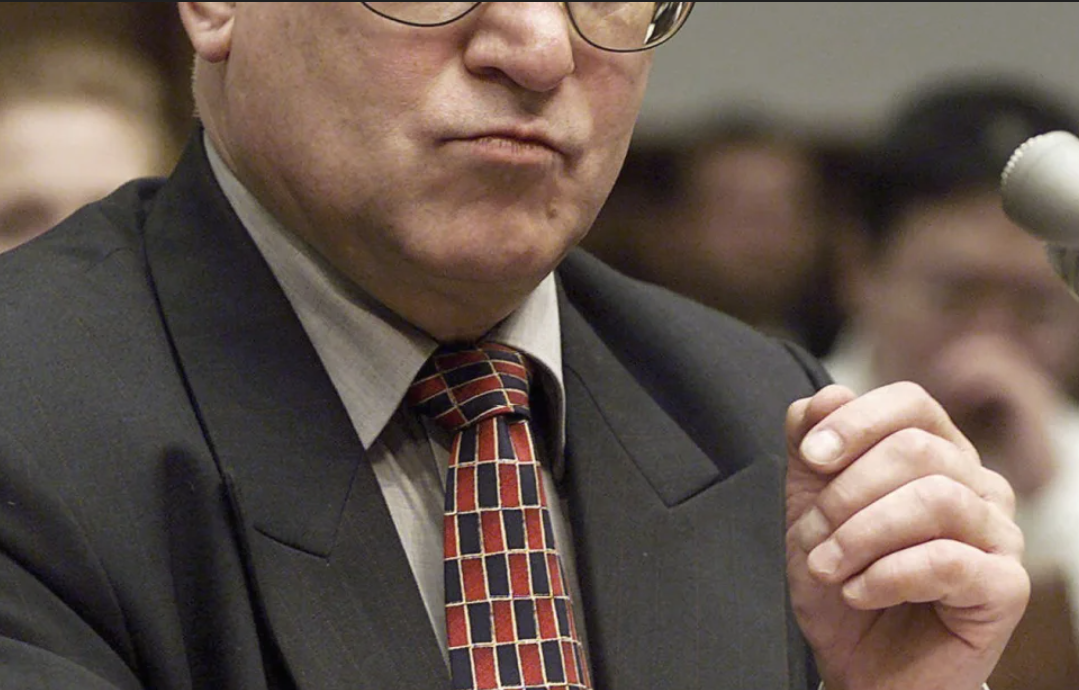Oleg Gordievsky, a former Soviet KGB officer who played a pivotal role in altering the course of the Cold War by secretly passing valuable intelligence to Britain, has passed away at the age of 86.
Gordievsky died on March 4 in England, where he had lived since defecting in 1985. Authorities have stated that his death is not being treated as suspicious.
Regarded as one of the most significant spies of his time, Gordievsky’s intelligence work in the 1980s was instrumental in preventing a potential nuclear conflict between the USSR and the West.
Born in Moscow in 1938, Gordievsky joined the KGB in the early 1960s, with postings in Moscow, Copenhagen, and London, where he eventually became the KGB station chief. He was among several Soviet agents who became disillusioned with the USSR after Soviet tanks suppressed the Prague Spring movement for freedom in 1968. In the early 1970s, he was recruited by MI6, the British intelligence agency.
In the 1990 book KGB: The Inside Story, co-authored by Oleg Gordievsky and British intelligence historian Christopher Andrew, Gordievsky shared his belief that the Communist one-party system inevitably leads to intolerance, inhumanity, and the erosion of freedoms. He concluded that the most effective way to support democracy was to align himself with the West and work against the oppressive regime he had once served.
Oleg Gordievsky worked as a British intelligence agent for over a decade during the peak of the Cold War. In 1983, he alerted both the U.K. and U.S. about the Soviet leadership’s growing fear of a nuclear strike from the West, which led them to contemplate launching a first strike. As tensions escalated during a NATO military exercise in Germany, Gordievsky played a key role in assuring Moscow that the exercise was not a prelude to an attack. Shortly after, U.S. President Ronald Reagan began efforts to reduce nuclear tensions with the Soviet Union.
In 1985, Gordievsky was summoned back to Moscow for consultations. Despite suspecting his cover had been blown, he returned and was interrogated, though he was not charged. The British government organized a daring operation to extract him from the Soviet Union, ultimately smuggling him out in the trunk of a car.
Oleg Gordievsky was the highest-ranking Soviet spy to defect during the Cold War. In 2014, declassified documents revealed that the British government valued him so highly that then-Prime Minister Margaret Thatcher attempted to strike a deal with Moscow. The offer was that if Gordievsky’s wife and daughters were allowed to join him in the U.K., Britain would refrain from expelling all the KGB agents Gordievsky had uncovered.
Moscow rejected the proposal, prompting Thatcher to expel 25 Russian diplomats. This move came despite concerns from Foreign Secretary Geoffrey Howe, who feared it could damage relations as Soviet leader Mikhail Gorbachev was working toward thawing the tensions between the U.S.S.R. and the West.
In retaliation, Moscow expelled 25 British diplomats, which led to a second round of expulsions, with both sides sending six more officials out. However, despite initial concerns, diplomatic relations between the two nations were not severed.
Gordievsky’s family remained under constant surveillance by the KGB for six years before they were allowed to join him in the U.K. in 1991. He spent the remainder of his life under British protection in the peaceful town of Godalming, located about 40 miles southwest of London.
Oleg Gordievsky was sentenced to death for treason in Russia but was honored in Britain, where he was appointed a Companion of the Order of St. Michael and St. George by Queen Elizabeth II in 2007. This prestigious award is the same one held by the fictional spy James Bond, and it recognized Gordievsky’s contributions to the security of the United Kingdom.
In 2008, Gordievsky alleged that he had been poisoned and spent 34 hours in a coma after taking sleeping pills contaminated by a Russian business associate. This incident highlighted the risks he faced throughout his life.
These dangers were further emphasized in 2018, when former Russian intelligence officer Sergei Skripal and his daughter were poisoned with a nerve agent made in the Soviet Union in Salisbury, England, where Gordievsky had lived quietly for many years.
On March 4, police were called to an address in Godalming, where they found the 86-year-old Gordievsky dead. The Surrey Police stated that the death is not being treated as suspicious, and there is no indication of any greater risk to the public. Counterterrorism officers are leading the investigation.
